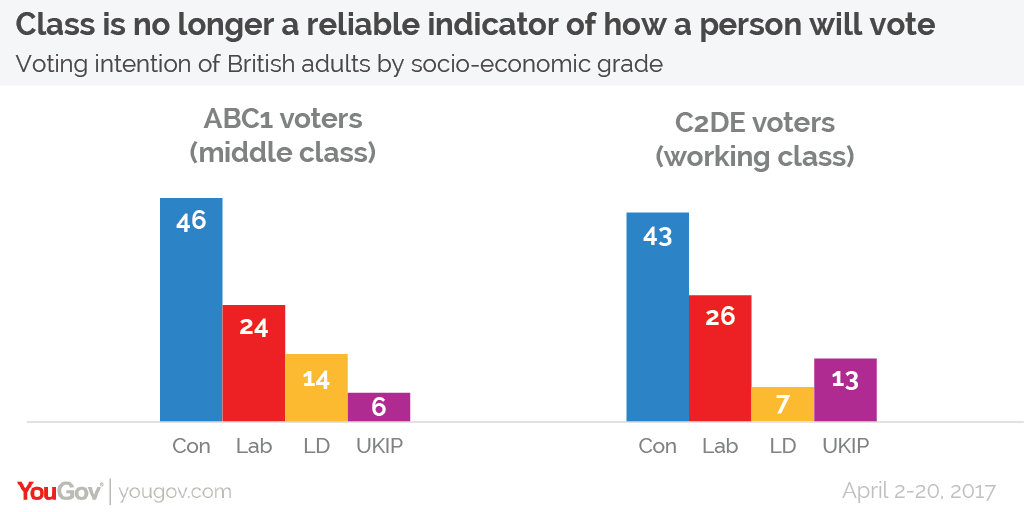By Daniel Payne, Editor
‘Strong and Stable leadership’ has quickly become the punchline for many a Tory joke over this election campaign. It’s a classic Lynton Crosby soundbite, ceaselessly overused to the point of losing all meaning (it even slipped into The May’s One Show interview). It’s everywhere and it’s infuriating, but there is no denying that it perfectly captures May’s boring, sensible and robotic nature in four simple words. Yes the slogans are easy to scoff at, but it is certainly true that much of May’s extraordinary personal popularity (61% believe she makes the most capable leader) is down to this dull emphasis on consistency over presentation; that what she lacks in pizzazz she makes up for in graft.
I could stop there and some reading would begrudgingly vote Conservative. This is perhaps the motivation for the reluctant Tory voter: the person voting for a dull, bang-average, not-Corbyn government, and I readily admit that this is valid reasoning.
But I am convinced that voting Conservative in this election can allow for so much more than mere stability. In the wake of the vote to leave the European Union last year, the Conservative Party has been, and still is, changing significantly. It is going back to its Victorian roots and once again becoming the champion of the downtrodden, the defenders of the so called ‘Just about managing’ classes for whom conservatism and The Conservatives should exist to serve. The Tories are finally reclaiming the moral high ground.
Talk of putting the ‘Just about managing’ first is not just another soundbite — it is a genuine show of support for the Leave voting middle and working class people who have all too often been the butt of snarky jokes from wealthy Islington socialists rather than the salt of the Earth in this country.
There could be easier groups to pursue the votes of, but May has an impressive record of choosing the difficult fights, but the right fights. Take for instance her berating of the Police Federation for the shockingly high rates of search and arrest for young black men, or for her fierce defence of domestic abuse victims, or for the infamous ‘nasty party’ speech which jolted her party into modernisation. These are the bold assertions of a reformer.
May’s ideology treads the necessary balance between libertarian and statist, globalist and protectionist, radical and traditionalist; and in doing so is the ideally unifying figure to lead Britain into its future outside of the EU. Hers’ is a vision of a more streamlined government that intervenes when and where it should. It will provide greater worker’s rights and representation on boards in large companies. It will establish Britain as the Great Meritocracy where class, race or region of birth are no longer barriers to success through the creation of more partially selective schools for deprived areas and poor kids, and the development of more technical skills colleges. The Conservatives are addressing generationally unfair policies benefitting the old and hurting the young, seen with the removal of Winter Fuel Allowance for wealthy pensioners, the (hackneyed) attempt at shifting the responsibility of payment for social care from the young to the old and the removal of the pension’s triple lock. For too long the burden of hardship in the cold hard years of austerity were shouldered by the young – it’s about time this generational imbalance was addressed.
Admittedly, most young people look likely to vote for Corbyn because Vice and JME and i100 tell them to, but the fact that the Tories would address this in the full knowledge it only loses them elderly votes is admirable indeed.

YouGov polling
From the release of the manifesto there have been, and of course will continue to be, frustrations. The manifesto’s social care calamity has been embarrassing, if only because it is yet another U turn. Dredging up the dormant issue of foxhunting and the inevitable class tensions that accompany the debate is a mistake. The ‘tens of thousands’ immigration objective is an unnecessarily risky target that has failed to be met in the last six years of it as government policy.
Compromise, mistakes and disappointments are inevitable and entirely needed in politics; it just happens to be that they are felt all the more sharply when we believe in the fundamental idea of the change being brought about so slowly. Nonetheless, this by no means detracts from the hopeful promise of May’s Conservatives.
Britain has always been a place carved up and strongly divided by one social structure – class divisions. Like racial problems in the US and religious frictions in mainland Europe, it is one of the last few bastions of prejudice and social alienation still remaining in society. This was laid bare with the Brexit vote result – crudely explained showed that the rich voted to remain and the poor voted to leave. This is a critical historical moment where Britain can lay aside its class divides, and May is leading the charge by having majority support in all class groups from DE to AB.
This is May’s opportunity. Get this right and she could reinvent conservatism for another generation.